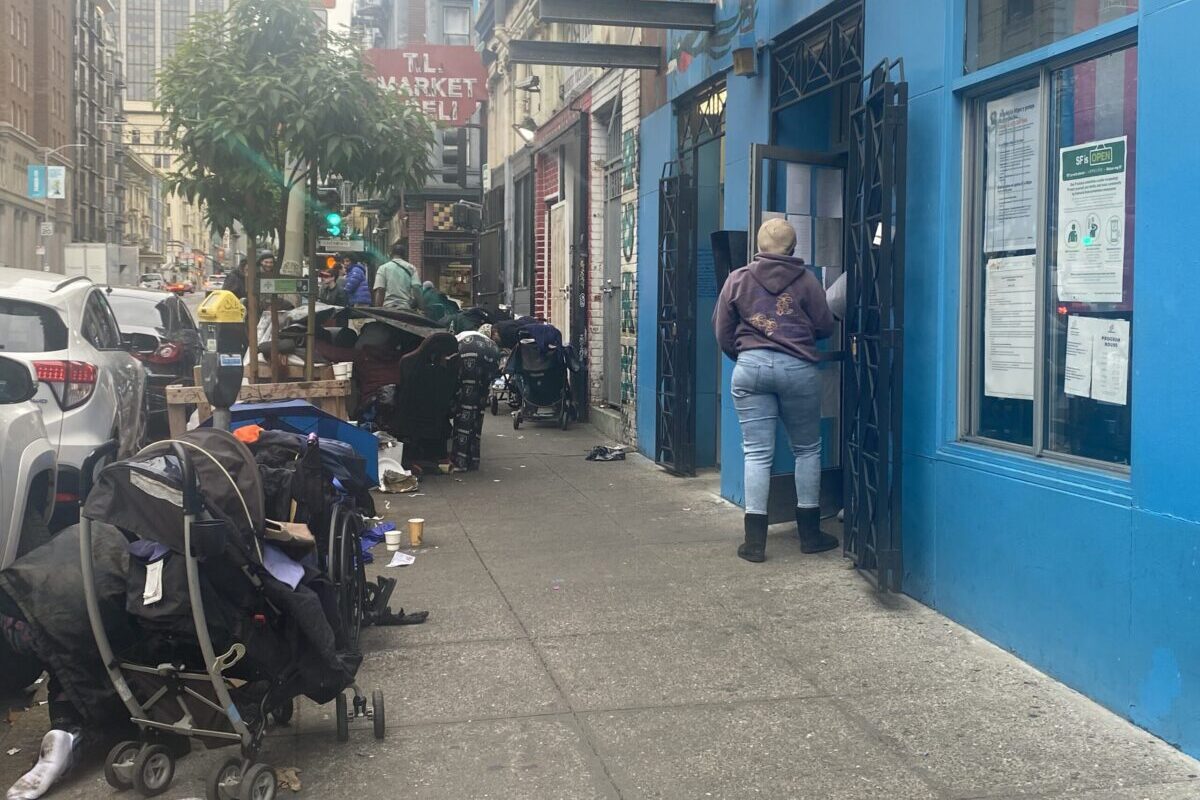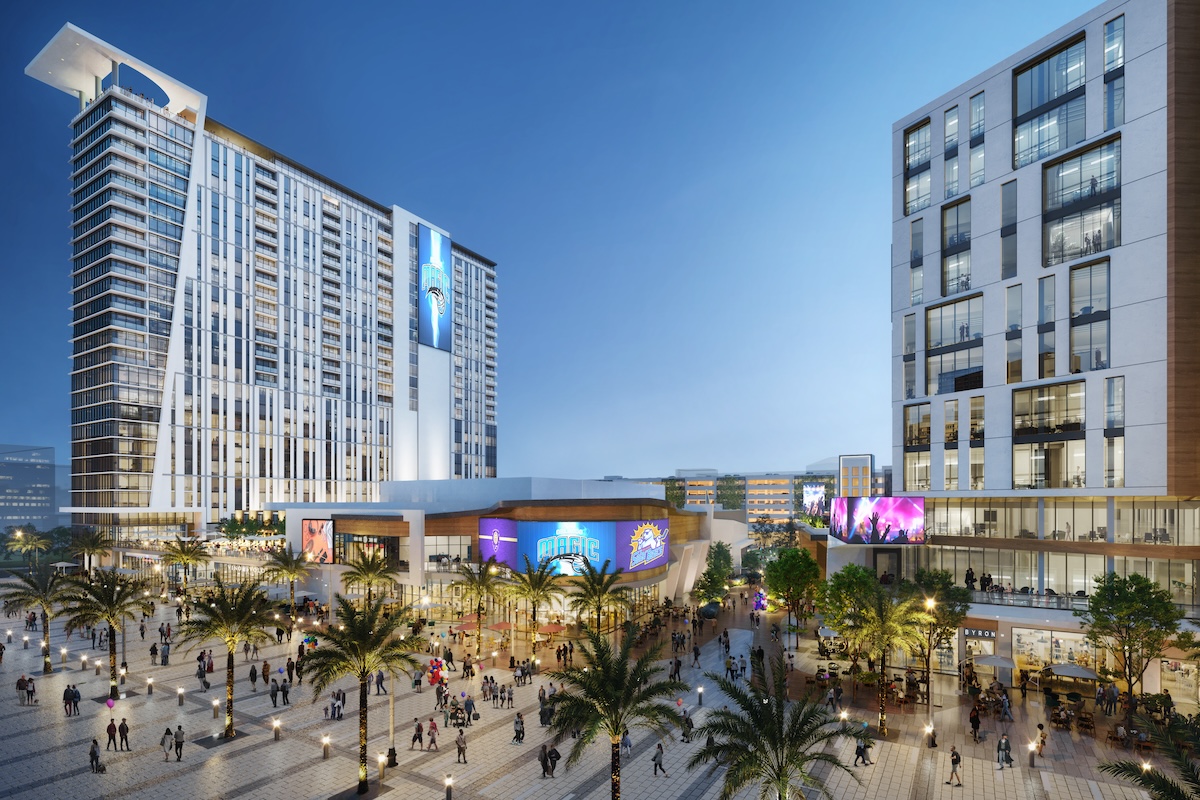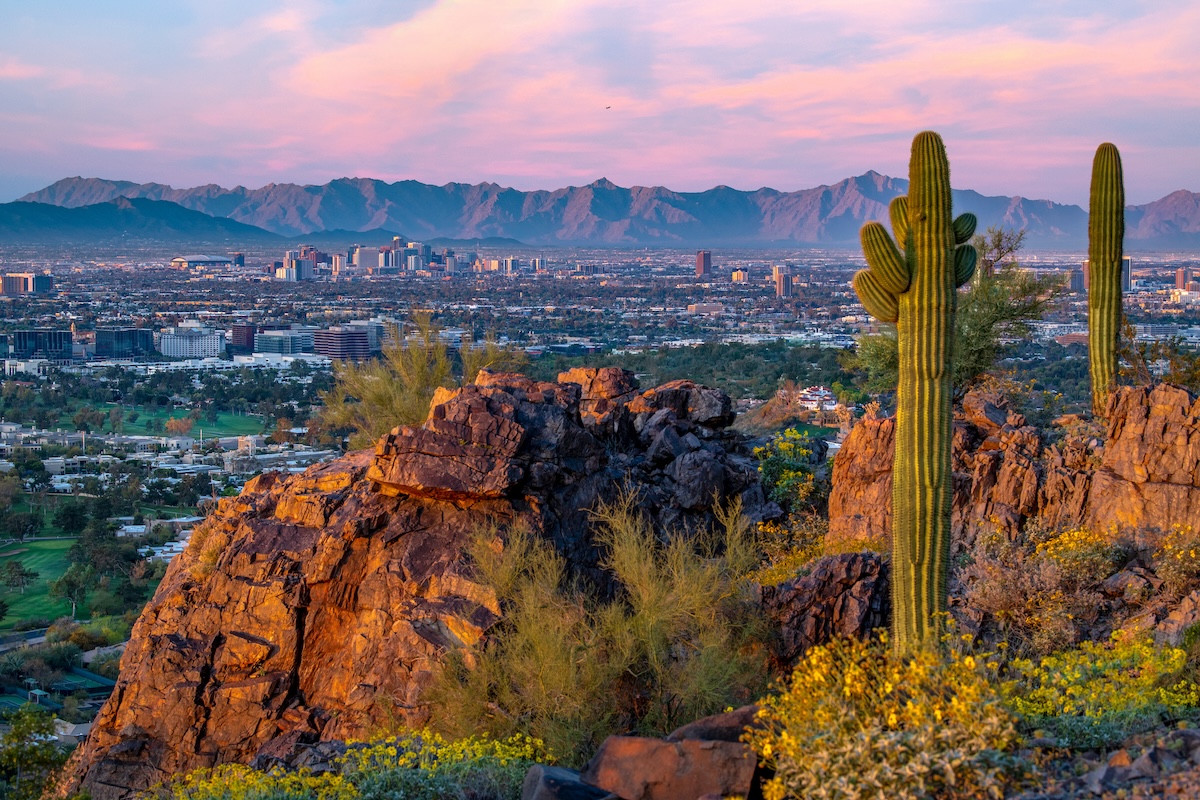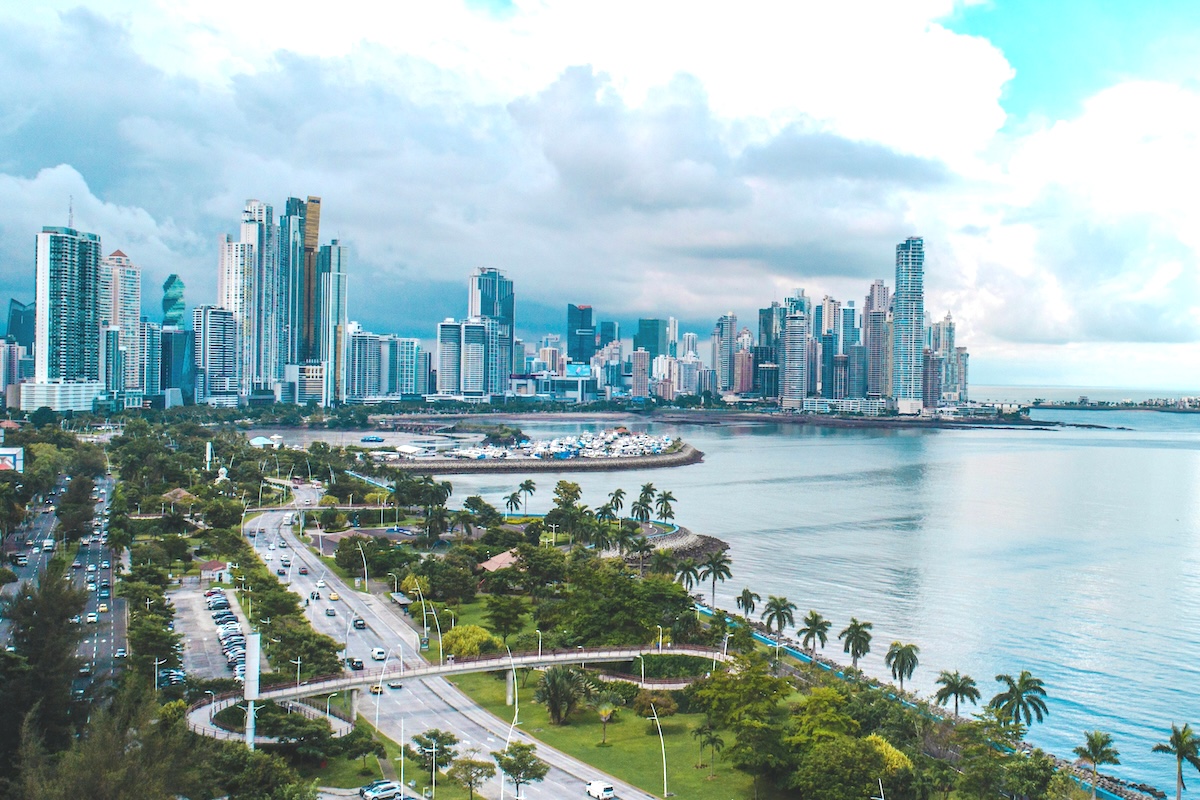Skift Take
The City’s efforts to spruce up its appearance before a global audience included hastily shoving the homeless out of sight and out of mind. Will other California cities grappling with homelessness follow suit?
Downtown San Francisco was awash with law enforcement officers, widespread protests, and tourists last week as the city hosted the Asia Pacific Economic Cooperation (APEC) CEO Summit. Around 1,200 CEOs, thousands of foreign delegates, and numerous global heads of state were in town.
As police-escorted motorcades wailed down Market Street, shuttling high-profile attendees to and from the Moscone Center, one characteristic of San Francisco was noticeably different: the city’s unhoused population that has become commonplace over the last few years had all but vanished.
This comes after sweeps carried out by law enforcement in San Francisco’s most visible area of downtown and the APEC security zone. Imposing 10-foot-tall steel barriers delineated the temporary secure area.
As the population of unhoused residents in California has exploded in recent years, will the state make this the standard practice during future events hosting a global audience?
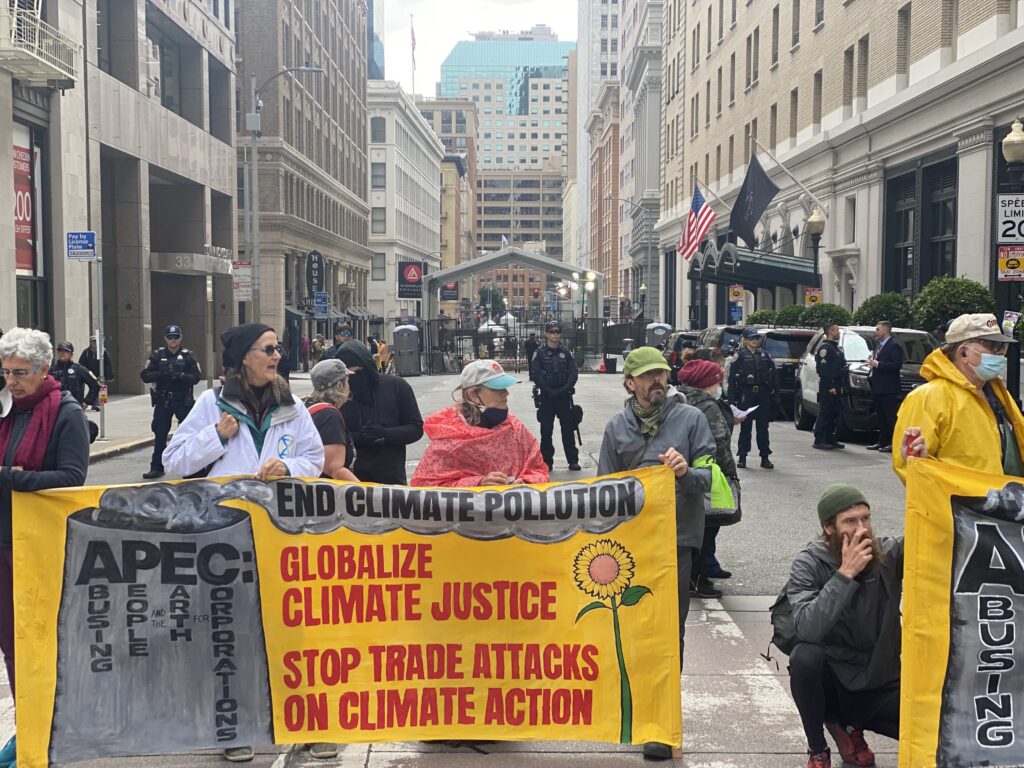
Displacing the Unhoused
The city pushed the vast majority of unhoused people into the city’s Tenderloin District. Here, the city’s cleaning efforts shuffle them periodically from one swath of sidewalk to another.
“I know folks say ‘oh, they’re just cleaning up this place because all these fancy leaders are coming into town,’ and that’s true – because it’s true,” said California Governor Gavin Newsom during a press conference ahead of the summit. The governor’s statement comes after a years-long effort to alleviate homelessness, bolster affordable housing, and curb open-air drug use while drawing sharp criticism for failing to do so.
“While it might be a clean up of the streets in the eyes of Gavin Newsome or the city, what we’re actually seeing is a vision and aesthetic that the most conservative people from around the country would like San Francisco to look like,” said Javier Bremond, a human rights organizer at the Coalition on Homelessness – a 5013c non-profit based in San Francisco, adding, “the people that they don’t like to look at, just don’t live there at all.”
According to Bremond, street sweeps of the unhoused and their encampments should be accompanied by outreach. The city’s goal is that unhoused residents receive services and offers for appropriate housing.
Controversial Measures
“The city’s resources for unhoused people are routinely mismanaged,” he said. In November 2022, voters opted for the Department of Homelessness and Supportive Housing (HSH) to be placed under the watch of an oversight commission following a ballot measure proposed by Supervisor Ahsha Safaí. This action resulted from an investigation carried out by the San Francisco Chronicle.
This month, the Mayor’s office reported that the city received $18.2 million from the California Department of Housing and Community Development to fund Project Homekey – a program to expand permanent supportive housing. The city is looking to purchase the 74-room property at 685 Ellis Street to operate as temporary housing and eventually convert the property to permanent homes.
“This latest project on Ellis Street will help us to stabilize people indoors where they can get the support they need, instead of leaving them out on the streets in our neighborhoods,” Breed said in a statement issued in early November. “I want to thank Governor Newsom for this critical support. Addressing homelessness requires all levels of government pushing forward solutions and working together.”
Stark Contrasts
Bremond said that the city’s need to clear the streets to make way for the summit was a missed opportunity for San Francisco to enact emergency measures to help the unhoused displaced during the event. Bremond pointed to past events where the city exhibited similar actions, such as during the NFL Super Bowl 50 in 2016.
“So, the city is pretty clear about why we’re doing this – it’s like there’s an influx of money that they claim will somehow trickle down to those in need while trying to show the world that we don’t actually have homeless people.”
San Francisco would later host a lavish reception and dinner in honor of Chinese President Xi Jinping following the daylong summit Wednesday with U.S. President Joe Biden in Attendance. The gala, hosted by the U.S.-China Business Council and the National Committee on U.S.-China Relations, also welcomed Apple CEO Tim Cook, Elon Musk, Boeing CEO Stan Deal, Visa CEO Ryan McInerney, Pfizer chairman and CEO Albert Bourla, Mayor London Breed, among others executives of prominent companies and high-ranking U.S. and foreign government officials. China reportedly did $760 billion in trade with the U.S. last year.
Impacting the At-Risk
Hosting the APEC Summit impacted other San Francisco groups, including the elderly and disabled, who live in low-income housing. The APEC security zone cut off residents from services they depend on, such as food delivery and public transportation.
“The people who are already on the margins, who might have housing but have a precarious housing status already, they’re also getting stuck with limited services that are important for their livelihood,” Bremond said. “Even if the summit only lasts a week, I think it’s pretty damning that the city thinks there won’t be any fallout from the action they’ve taken.”
According to Bremond, San Francisco had ample opportunity to conduct outreach and provide sufficient notification to those whom the summit would impact. Many community members and organizations, including his own, learned of the summit and its implications on short notice, making it difficult for them to create a contingency around the city’s plans.
San Francisco did issue a notification for those living within the APEC security zone. Still, Bremod said that it’s unlikely that those impacted keep tabs on the big conferences hosted by San Francisco.
Attempting to Solve Homelessness
It is no secret that the City of San Francisco has grappled with a negative public image based on homelessness and crime. As a result, the city boasts funding and numerous programs for planners considering hosting events in San Francisco through the city’s official destination marketing organization, San Francisco Travel.
Planners can review the slew of initiatives put forward to alleviate these issues. The city’s $14.6 billion dollar budget, signed by Mayor London Breed in July of this year includes
- $1.3 million to address homelessness
- $25.4 million to continue the Welcome Ambassador Program in the Mid-Market and Tenderloin neighborhoods
- $8 million to revitalize public spaces in the downtown area
- $10 million to continue the partnership initiative Ambassador Program with San Francisco Travel
- $24.9 million to fund the Street Crisis Response Team
This is in addition to Breed declaring that the city surpassed its $20 million fundraising goal to host the week-long summit.
“If that amount of money can be raised for this conference, the obvious thing is we could be spending that type of money on a lot of different programs,” Bremond said. “You could fund a lot of things that communities have been asking for a while in a lot of different areas, not just housing,” he said, adding, “So it is unsettling to hear that we can drum up this money so quickly for a conference that no one from the public is invited to.”
A Future Problem in LA
Los Angeles will host the Olympic Games slated for the summer of 2028. Current estimates show over 69,000 area residents are living unhoused – the largest population of unhoused people in the country – with estimates reported by the consulting firm McKinsey and Company projected to reach over 100,000 by the time LA hosts the games.
Current figures show the rate of people living unhoused is outpacing measures to combat the issue in LA, with funding expanding from $63 million to $808 million from 2015 to 2022, while the number of unhoused people in the area increased by 56% in the same period of time.
Los Angeles hosted the Summer Olympics once before. In 1984, the city prepared by cracking down on its unhoused population by making homelessness a crime. “We’re trying to sanitize the area,” said then-Los Angeles Police Department captain Billy Wedgeworth in a statement issued to the Los Angeles Times one week before the game’s opening ceremony – clearing out the area’s infamous Skid Row from public view.
While the issue of homelessness in LA persists, Chairman of Los Angeles 2028 Casey Wasserman said, “This is a problem we have today,” adding, “it’s not LA28’s problem to solve.” With Wasserman’s hands-off stance on the issue of homelessness, community organizations, such as Unite Here! Local 11 predicts that hosting the games will further exacerbate the housing crisis for at-risk portions of LA’s population by driving up housing costs – namely for the service industry workers that will make hosting the games a success.
Photo credit: Refugio Garcia / Skift Meetings
